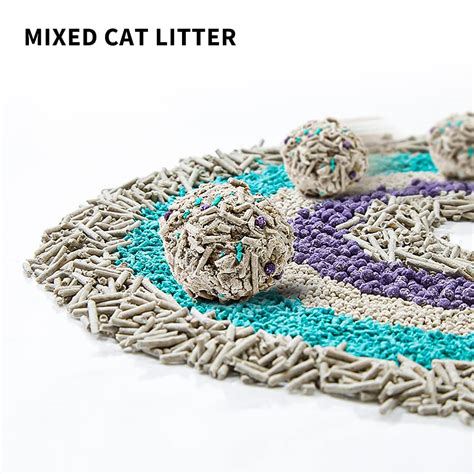Introduction
Cats are known for their fastidious grooming habits, and a clean litter box is essential for maintaining their coat health. Dirty litter boxes can harbor bacteria and parasites that can cause skin infections, matting, and other health problems. In addition, the strong odor of ammonia from urine can be irritating to cats’ sensitive noses and deter them from using the litter box, leading to further hygiene issues. This article discusses the importance of cat litter and odor control for coat health and provides tips on choosing the right litter and controlling odors.

The Importance of Cat Litter
Cat litter provides a clean and comfortable place for cats to eliminate, helping to prevent accidents outside the litter box. It also helps to absorb moisture and control odors, which is essential for maintaining a healthy environment for both cats and their owners.
How Odor Affects Cat Health
The strong odor of ammonia from urine can be irritating to cats’ sensitive noses and deter them from using the litter box, leading to further hygiene issues. In addition, ammonia can cause respiratory problems in cats, such as coughing, sneezing, and wheezing.
Types of Cat Litter
There are many different types of cat litter available, each with its own advantages and disadvantages. Some of the most common types include:
- Clay litter: Clay litter is the most popular type of cat litter, and it is relatively inexpensive. However, it can be dusty and can track outside the litter box.
- Clumping litter: Clumping litter forms clumps around urine, making it easy to scoop and remove. Clumping litter is more expensive than clay litter, but it can be more effective at controlling odors.
- Crystal litter: Crystal litter is made from silica gel, which absorbs moisture and odor very well. Crystal litter is more expensive than other types of litter, but it can last for several weeks.
- Pine litter: Pine litter is made from pine shavings, which give it a natural odor that some cats find appealing. Pine litter is biodegradable and can be composted.
Choosing the Right Cat Litter
When choosing a cat litter, there are a few things to consider:
- Your cat’s preferences: Some cats prefer certain types of litter, such as soft and fluffy litter or litter with a natural odor. It is important to try different types of litter to see what your cat likes best.
- Odor control: If odor control is a priority, you should choose a litter that is specifically designed to control odors. Clumping litter and crystal litter are both good options for odor control.
- Tracking: If you are concerned about litter tracking outside the litter box, you should choose a litter that is less likely to stick to your cat’s paws. Clay litter and clumping litter are both good options for minimizing tracking.
- Cost: Cat litter can range in price from a few dollars to over $20 per bag. It is important to choose a litter that fits your budget.
Odor Control Tips
In addition to choosing the right cat litter, there are a few other things you can do to control odors:
- Scoop the litter box daily: Scooping the litter box daily will help to remove waste and prevent odors from building up.
- Wash the litter box regularly: Wash the litter box with hot, soapy water at least once a week. This will help to remove any bacteria or parasites that may be present.
- Use an odor-control product: There are a variety of odor-control products available, such as sprays, gels, and crystals. These products can help to neutralize odors and keep your home smelling fresh.
Conclusion
Cat litter and odor control are essential for maintaining cat coat health. By choosing the right litter and following these odor control tips, you can help to keep your cat healthy and happy.
Additional Tips
- Place the litter box in a well-ventilated area: This will help to dissipate odors and prevent them from building up.
- Avoid using scented litter: Scented litter can be irritating to cats’ noses and may deter them from using the litter box.
- Do not overfill the litter box: Overfilling the litter box can make it difficult for cats to dig and bury their waste, which can lead to accidents outside the litter box.
- If your cat is having difficulty using the litter box, consult your veterinarian: There may be an underlying medical condition that is causing the problem.





















